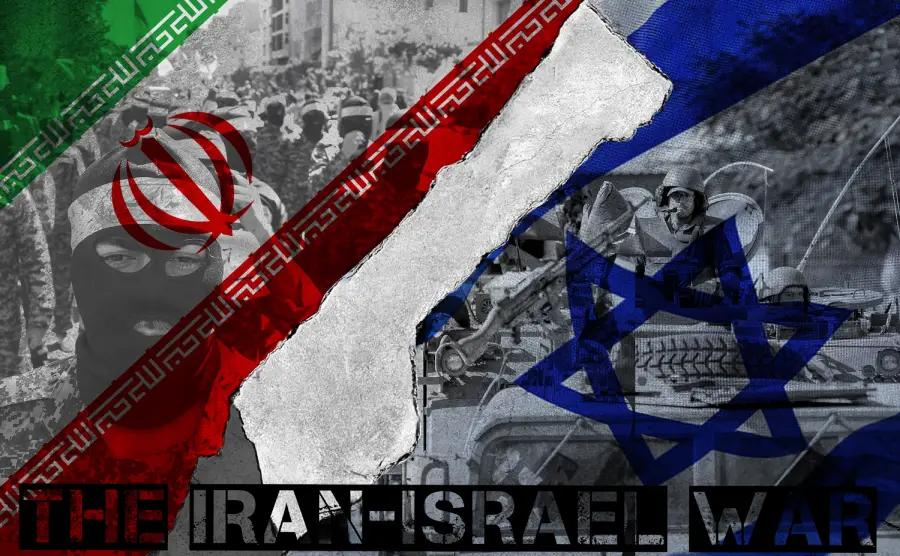
The conflict between Iran and Israel has been brewing for decades, with tensions escalating in recent years. While the two nations have not engaged in direct combat, their proxy forces have been clashing in a shadow war that threatens to destabilize the entire Middle East. Let’s delve into the complex web of proxy forces and explore their role in the Iran-Israel conflict.
A Brief History of the Conflict
The roots of the Iran-Israel conflict can be traced back to the 1979 Iranian Revolution, which saw the overthrow of the Shah and the establishment of an Islamic republic. Israel, which had previously enjoyed good relations with Iran, soon found itself at odds with the new regime. The situation deteriorated further with the Iran-Iraq War, during which Israel supported Saddam Hussein’s Iraq.
In the 1990s, Iran began to support Hezbollah, a militant group operating in Lebanon. Israel, in turn, backed anti-Hezbollah forces in Lebanon. This proxy war has continued to this day, with Iran and Israel supporting opposing sides in Syria, Yemen, and other regional conflicts.
Proxy Forces: A Definition
Proxy forces are armed groups or militias that operate on behalf of a state or organization, often in a covert or semi-covert manner. In the context of the Iran-Israel conflict, proxy forces include:
- Hezbollah (Iran-backed)
- Hamas (Iran-backed)
- Palestinian Islamic Jihad (Iran-backed)
- Israeli-backed militias in Syria and Lebanon
The Role of Proxy Forces
Proxy forces play a crucial role in the Iran-Israel conflict, allowing both sides to wage war without directly engaging each other. This strategy has several advantages:
- Plausible deniability: By using proxy forces, Iran and Israel can maintain a level of plausible deniability, claiming they are not directly involved in the conflict.
- Reduced risk: Proxy forces absorb the risk of casualties and international condemnation, shielding Iran and Israel from direct blame.
- Flexibility: Proxy forces can be used to target specific enemies, such as Hezbollah’s attacks on Israeli forces in Lebanon.
● Hezbollah: Iran’s Most Powerful Proxy
Hezbollah is Iran’s most powerful and influential proxy force. Founded in the 1980s, it has evolved into a formidable military and political organization, with an estimated 20,000-30,000 fighters. Hezbollah has been instrumental in Iran’s regional strategy, fighting in Syria, Lebanon, and Yemen.
● Hamas and Palestinian Islamic Jihad: Iran’s Gaza Proxies
Hamas and Palestinian Islamic Jihad are Iran-backed militant groups operating in the Gaza Strip. While they have historically focused on fighting Israel, they have also been drawn into the wider regional conflict, receiving support from Iran and clashing with Israeli forces.
● Israeli-Backed Militias: A Counterbalance to Iran’s Proxies
Israel has supported various militias and rebel groups in Syria and Lebanon, aiming to counterbalance Iran’s proxy forces. These groups include the Free Syrian Army and the Lebanese Forces.
The Geopolitical Dynamics of the Iran-Israel Conflict
The conflict between Iran and Israel is not just a bilateral issue but has far-reaching geopolitical implications. The rivalry between these two regional powers has drawn in other nations, exacerbating tensions and creating a complex web of alliances and rivalries.
The Regional Dimension
- Saudi Arabia and the Gulf States: Saudi Arabia and the Gulf States have long been wary of Iran’s growing influence in the region. They see Iran’s support for Hezbollah and Hamas as a threat to their own stability and have backed Israel in its efforts to counter Iran’s proxy forces.
- Turkey: Turkey has historically maintained good relations with Iran but has also been critical of its support for Hezbollah. Turkey’s relations with Israel have been strained in recent years, but it has also sought to maintain a balance between its ties with Iran and its relations with the West.
- Russia: Russia has emerged as a key player in the region, backing Iran’s ally, Syria, in the civil war. While Russia has maintained good relations with Israel, its support for Iran has created tensions, particularly in the context of the Syrian conflict.
The Global Dimension
- United States: The United States has long been a key ally of Israel, providing military aid and diplomatic support. However, the US has also sought to engage with Iran, particularly under the Obama administration, which negotiated the Joint Comprehensive Plan of Action (JCPOA) nuclear deal. The Trump administration’s withdrawal from the JCPOA has heightened tensions between the US and Iran.
- European Union: The European Union has sought to maintain a balanced approach, supporting the JCPOA and engaging with Iran while also criticizing its human rights record and support for proxy forces. The EU has also maintained good relations with Israel, but its criticism of Israel’s settlement policies has created tensions.
The Role of Proxy Forces in the Geopolitical Dynamics
Proxy forces have played a crucial role in the geopolitical dynamics of the Iran-Israel conflict, allowing both sides to exert influence and project power without direct confrontation.
- Hezbollah: Hezbollah’s military victories in Lebanon and Syria have made it a key player in the region, allowing Iran to exert influence beyond its borders.
- Hamas and Palestinian Islamic Jihad: These groups have received support from Iran, enabling them to maintain a level of resistance against Israel, even in the face of significant military superiority.
- Israeli-backed militias: Israel’s support for militias in Syria and Lebanon has allowed it to counterbalance Iran’s proxy forces and maintain a level of influence in the region.
The Future of the Conflict
The Iran-Israel conflict shows no signs of abating, with proxy forces continuing to play a central role. The geopolitical dynamics of the conflict are complex, with multiple regional and global players involved. To reduce tensions and prevent a wider regional war, diplomatic efforts are essential. This includes:
- Dialogue between Iran and Israel: Direct talks between Iran and Israel could help reduce tensions and create a framework for conflict resolution.
- Regional security initiatives: Regional security initiatives, such as the Gulf Cooperation Council (GCC), could provide a framework for addressing regional security concerns and reducing tensions.
- International diplomacy: International diplomacy, led by the United States, the European Union, and Russia, could help create a framework for conflict resolution and reduce tensions between Iran and Israel.
Content Resources and References:
- “The Iran-Israel War: How it Started and Where it’s Headed” by Trita Parsi (Foreign Affairs)
- “Iran’s Proxy Forces: A Guide” by Ali Alfoneh (The Atlantic)
- “Hezbollah: A History of the ‘Party of God'” by Augustus Richard Norton (Princeton University Press)
- “The Gaza Wars: A History of the Israeli-Palestinian Conflict” by Jonathan Schanzer (Palgrave Macmillan)
- “The Syrian Civil War: A Guide to the Conflict” by Aron Lund (The Century Foundation)
- “The Geopolitics of the Iran-Israel Conflict” by Flynt Leverett and Hillary Mann Leverett (Oxford University Press)
- “The Middle East: A Brief History of the Last 2,000 Years” by Bernard Lewis (Viking Press)
- “The Political Economy of the Middle East” by Alan Richards and John Waterbury (Westview Press)
Explore Further: Dive into freelyblogging for a treasure trove of fascinating articles and the latest global trends!
